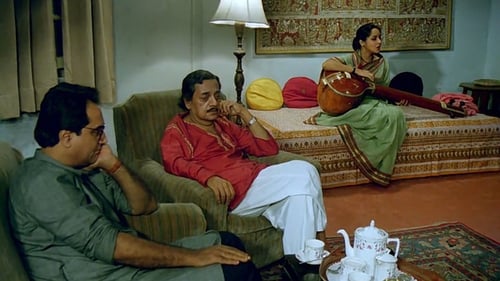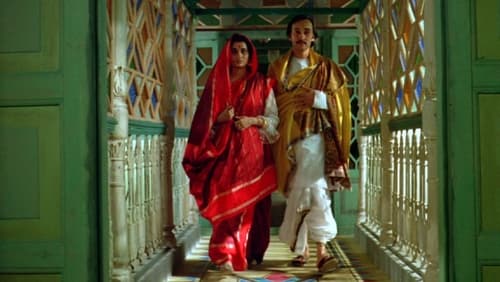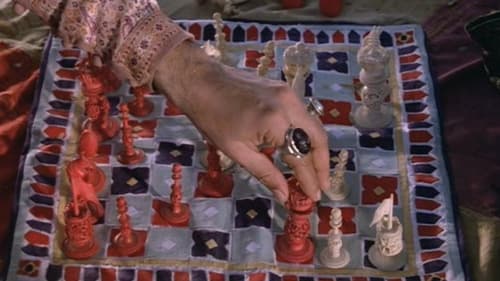
Assistant Camera
A well-off Indian family is paid an unexpected, and rather unwanted, visit by a man claiming to be the woman's long lost uncle. The initial suspicion with which they greet the man slowly dissolves as he regales them with stories of his travels, tales that are at odds with their conventional middle class perspective on the world.

Assistant Camera
When the movie opens, a woman is recalling the events that molded her perspective on the world. Years ago, her husband, a wealthy Western-educated landowner, challenged tradition by providing her with schooling, and inviting her out of the seclusion in which married women were kept, to the consternation of more conservative relatives. Meeting her husband's visiting friend from college, a leader of an economic rebellion against the British, she takes up his political cause, despite her husbands warnings. As the story progresses, the relationship between the woman and the visitor becomes more than platonic, and the political battles, pitting rich against poor and Hindu against Moslem, turn out not to be quite as simple as she had first thought.

Assistant Camera
It is the year 1856. Nawab Wajid Ali Shah is the king of Awadh, one of the last independent kingdoms of India. The British colonialists, intent on controlling this rich land, have sent general Outram on a secret mission to clear the way for an annexation. Pressure is mounting amidst intrigue and political manoeuvres, but the Nawab whiles away his time in pursuit of pleasure and religious practice. The court is of no help either—Court nobles Mir and Mirza, ignoring the situation of their country and all their duties towards their families, spend their days playing endless games of chess. The film is based on Munshi Premchand's short story of the same name.


